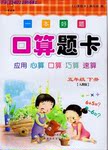题目内容
----- Do you know our town at all?
----- No, this is the first time I ______ here.
A. was B. have been
C. came D. are coming
B
【解析】It(this) is the …time that…. 在这个句型中从句要用完成时态。

练习册系列答案
 一本好题口算题卡系列答案
一本好题口算题卡系列答案
相关题目
题目内容
----- Do you know our town at all?
----- No, this is the first time I ______ here.
A. was B. have been
C. came D. are coming
B
【解析】It(this) is the …time that…. 在这个句型中从句要用完成时态。

 一本好题口算题卡系列答案
一本好题口算题卡系列答案